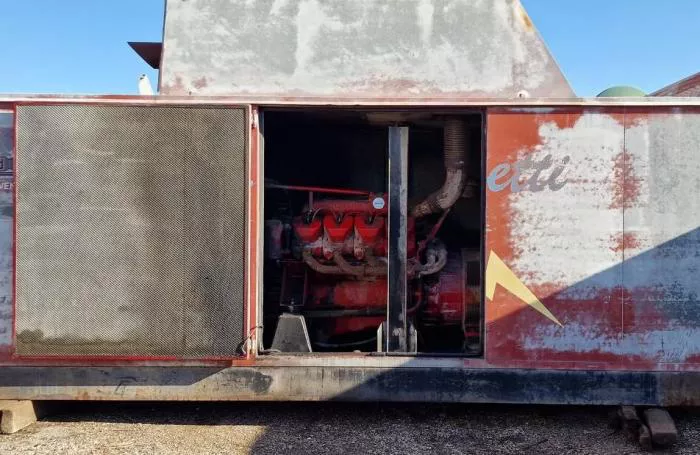In diesel generators, maintaining an optimal operating temperature is essential for their efficiency, performance, and longevity. To manage and regulate the temperature of the engine and its components, a suitable coolant is used. This article explores the types of coolants used in diesel generators, their properties, and the considerations for choosing the right one.
1. The Role of Coolant in Diesel Generators
Coolant plays a vital role in a diesel generator by regulating engine temperature, preventing overheating, and protecting components. It absorbs the heat generated by the engine during operation and transfers it to the radiator or cooling system, where it is dissipated into the atmosphere. This helps prevent overheating, which can cause engine damage or failure. Additionally, coolants often contain additives that protect the engine from corrosion, rust, and scale buildup, ensuring the engine’s performance and lifespan.
2. Types of Coolants Used in Diesel Generators
2.1 Ethylene Glycol-Based Coolants
Ethylene glycol-based coolants, commonly known as antifreeze, are widely used in diesel generators due to their effective temperature regulation and protection properties. Ethylene glycol lowers the freezing point of the coolant, preventing it from freezing in cold weather conditions. This is crucial for ensuring the generator starts and operates reliably in low temperatures. It also raises the boiling point of the coolant, allowing the engine to operate at higher temperatures without boiling over. Most ethylene glycol-based coolants contain corrosion inhibitors that protect the engine’s metal components from rust and corrosion.
2.2 Propylene Glycol-Based Coolants
Propylene glycol-based coolants are another type used in diesel generators. They are considered a safer alternative to ethylene glycol-based coolants due to their lower toxicity. Propylene glycol is less toxic and environmentally friendly, making it a preferred choice for applications where safety is a concern. Like ethylene glycol, propylene glycol effectively regulates engine temperature and provides freeze protection. It also contains additives that prevent corrosion and scale formation in the engine.
2.3 Water-Based Coolants
Water-based coolants, often mixed with antifreeze, are used in some diesel generators, particularly in applications where cost and availability are critical. Water is inexpensive and readily available, making it a cost-effective option for cooling. Water has a high heat transfer coefficient, making it effective at removing heat from the engine. However, pure water lacks freeze protection, so it is usually mixed with antifreeze to provide adequate protection in colder climates.
see also: How Much to Rent a Diesel Generator?
3. Considerations for Choosing the Right Coolant
3.1 Engine Manufacturer Recommendations
When selecting a coolant for a diesel generator, always refer to the engine manufacturer’s recommendations. The manufacturer will specify the type of coolant that is best suited for the engine, including any specific additives or formulations required to ensure optimal performance and longevity.
3.2 Climate and Operating Conditions
The climate and operating conditions where the diesel generator will be used play a significant role in choosing the appropriate coolant. In areas with freezing temperatures, it is essential to use a coolant with a low freezing point to prevent the coolant from freezing and causing engine damage. For hot climates, a coolant with a high boiling point is crucial to prevent overheating and ensure reliable operation.
3.3 Coolant Additives
Coolant additives are substances added to the base coolant to enhance its properties. These may include corrosion inhibitors to protect the engine from rust and corrosion, scale inhibitors to prevent scale buildup in the cooling system, and anti-foaming agents to reduce foam formation, which can impair cooling efficiency.
3.4 Maintenance and Replacement
Regular maintenance and replacement of coolant are necessary to ensure the generator operates efficiently. Regularly checking the coolant level and condition is important to ensure it is not contaminated or degraded. Following the manufacturer’s recommendations for coolant replacement intervals helps maintain optimal engine performance and prevent potential issues.
Conclusion
Selecting the right coolant for a diesel generator is essential for maintaining optimal engine performance and preventing overheating or damage. Ethylene glycol-based coolants, propylene glycol-based coolants, and water-based coolants each have their advantages and applications. By considering factors such as manufacturer recommendations, climate, and coolant additives, operators can ensure their diesel generators run efficiently and reliably. Regular maintenance and monitoring of coolant levels and condition further contribute to the longevity and effective operation of the generator.
In summary, the correct selection and maintenance of coolant are fundamental to the effective operation and longevity of a diesel generator. By understanding the properties and benefits of different coolant types and following best practices for maintenance, operators can ensure that their diesel generators perform reliably and efficiently throughout their service life. Proper coolant management helps prevent engine overheating, minimizes the risk of damage, and contributes to the overall durability and efficiency of the generator, ultimately leading to reduced downtime and operational costs.
Related topics:

